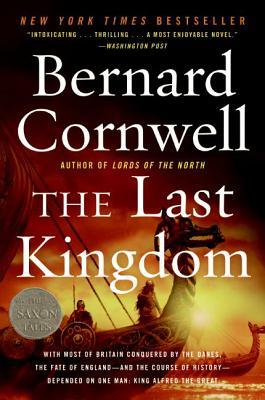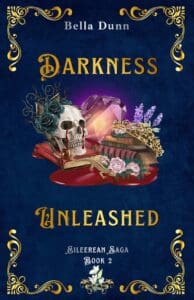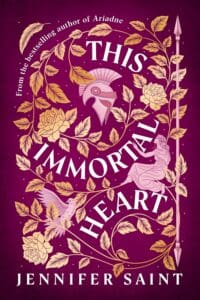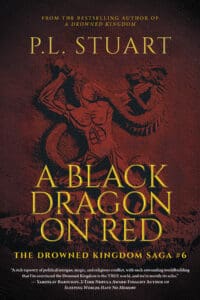Rating: ★★★★☆
Synopsis
This is the story of the making of England in the 9th and 10th centuries, the years in which King Alfred the Great, his son and grandson defeated the Danish Vikings who had invaded and occupied three of England’s four kingdoms.
The story is seen through the eyes of Uhtred, a dispossessed nobleman, who is captured as a child by the Danes and then raised by them so that, by the time the Northmen begin their assault on Wessex (Alfred’s kingdom and the last territory in English hands) Uhtred almost thinks of himself as a Dane. He certainly has no love for Alfred, whom he considers a pious weakling and no match for Viking savagery, yet when Alfred unexpectedly defeats the Danes and the Danes themselves turn on Uhtred, he is finally forced to choose sides. By now he is a young man, in love, trained to fight and ready to take his place in the dreaded shield wall. Above all, though, he wishes to recover his father’s land, the enchanting fort of Bebbanburg by the wild northern sea.
This thrilling adventure—based on existing records of Bernard Cornwell’s ancestors—depicts a time when law and order were ripped violently apart by a pagan assault on Christian England, an assault that came very close to destroying England.
Review
“Laughter in battle. That was what Ragnar had taught me, to take joy from the fight.”
Thank you to HarperAudio for this audiobook in exchange for an honest review.
I already had an experience in this series, its characters, and the story through the TV show, so starting The Last Kingdom gave me nostalgia and a sense of coming home. This is one of my favorite periods in history and Bernard Cornwell does a fantastic job of depicting this time where Kings reigned, danes raided, and you had to fight to keep everything you had. Cornwell creates this atmosphere with vivid descriptions of people, battles, landscapes, and cultures and that was one of my favorite parts of the book.
That leads me to talking about the characters. Bernard Cornwell used real accounts from his ancestors to frame this story. I believe because of this he had a clear picture of the type of people that lived back then. It was incredible how real every single person felt. Uhtred, the son of a nobleman, raised by Norsemen, and torn between two worlds. Alfred, brother to the king, an incredibly pious man with both spiritual and physical weaknesses that he hates. Ragnar the older, mentor and father figure to young Uhtred, and fierce Viking warrior. Not only these main characters, but everyone in the story was incredibly well described and had their own believable personalities and motivations.
“Destiny is everything.”
This story is told completely from Uhtred’s perspective as a narrator of his own life and I loved that format. Uhtred is a fascinating protagonist. A man born a Saxon, at first taken, and then raised by Danes, he is truly a man of two worlds and it shows. A huge part of this novel is depicting the struggle Uhtred has to figure out who he is and what he wants. Is he a Dane or a Saxon? Does he want to live and raid with the Danes or go and take back Bebbanburg as the rightful Alderman? Getting the perspective directly from Uhtred as he is looking back on his life was a perfect way to tell this story.
Shield walls, swords, spears, bows and arrows, this story has it all! The pace is fast and there is a lot of action. Cornwell’s descriptions of the gritty reality of the shield wall were especially riveting. Even in the spots that a battle is not going on there was always something interesting to keep the reader’s attention.
I highly recommend this book if you have even the slightest interest in historical fiction. This was a fun, at times even light hearted read with a compelling protagonist, vivid battle scenes, and incredibly realized historical figures and culture.





Love this series! Great review!
Thank you! I am really enjoying the series as well! Already half way through The Pale Horseman!
I’ve been through all 11 and still love them all. Not sure how much longer the series will continue, but I’ll be there through the end (and be very sorry when it’s over).